Recently a participant at one of my presentations gave me the book, A Timbered Choir, by Wendell Berry. The book, a collection of some of his poetry, reawakened my interest in this prolific American writer.
Berry was born on August 5, 1934 in New Castle, Kentucky. Both his parents were fifth generation farmers in Henry County. His father was a lawyer as well as a tobacco farmer. Berry received his B.A. and M.A. in English from the University of Kentucky. It was there that he met Tanya Amyx and eventually married her in 1958. Here’s a story that
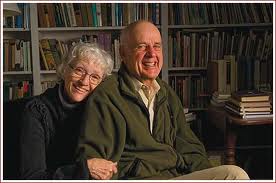
gives us an insight into Berry. The first time he saw Tanya she was standing in Miller Hall next to a wooden post. Years later, the University renovated that hall, and Berry managed to get that post for the Berry home as a symbol of their long marriage.
After his studies, Berry became something of an itinerant college professor of literature and writing. In 1965 the Berry’s bought a 125 acre farm they named Lane’s Landing in Port Royal. The farm, where they raised their two children and where they still live, lies on the Kent River before it flows into the Ohio River. Berry raised corn and small grains, using horses to work his land and employing organic methods of pest control.
Berry calls himself “a person who takes the Gospel seriously.” He is a pacifist as seen in his 2005 book entitled Blessed Are the Peacemakers: Christ’s Teachings about Love, Compassion, and Forgiveness. In the 1960’s he wrote against the war in Vietnam and demonstrated against nuclear power. He has also spoken out against the death penalty, writing, “As I am deeply uncomfortable with the taking of a human life before birth, I am also deeply uncomfortable with the taking of a human life after birth.”
Berry has written extensively about care for the environment. He demonstrated against Kentucky’s coal industry–especially the practice of mountain-top removal coal mining and that industry’s management of toxic coal ash. He opposed the University of Kentucky’s acceptance of big money from the coal industry. He showed his disapproval by removing his papers from the university and donating them to the Kentucky Historical Society instead.
Berry sees everything connected to everything else. He wrote: “Nothing exists for its own sake, but for a harmony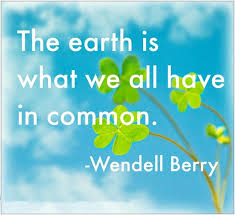 greater than itself which includes it.” His vast literary output includes novels, short stories, poetry, and essays. Recently he wrote something for The Atlantic (March 19, 2015) entitled “Farmlands without Farmers.” In this piece he laments the rise of “industrial agriculture” in which farmers are forced to grow only one crop on huge farms. He sees farmers as getting increasingly removed from the soil they cultivate. In the Midwest, he says, you can drive hundreds of miles along vast fields of corn or soybeans and never see another human being—except perhaps one driving a huge tractor “encased in temperature-controlled cabs.” He raises questions like these: Who is tending the soil? Who is paying attention to the landscape? Where are the stewards of the land?
greater than itself which includes it.” His vast literary output includes novels, short stories, poetry, and essays. Recently he wrote something for The Atlantic (March 19, 2015) entitled “Farmlands without Farmers.” In this piece he laments the rise of “industrial agriculture” in which farmers are forced to grow only one crop on huge farms. He sees farmers as getting increasingly removed from the soil they cultivate. In the Midwest, he says, you can drive hundreds of miles along vast fields of corn or soybeans and never see another human being—except perhaps one driving a huge tractor “encased in temperature-controlled cabs.” He raises questions like these: Who is tending the soil? Who is paying attention to the landscape? Where are the stewards of the land?
In an article on Berry, David Skinner describes the constants in Berry’s writings: “admiration for nature’s ingenuity, respect for locals and local knowledge, and a deeply Christian appreciation for our obligations to one another.” Some
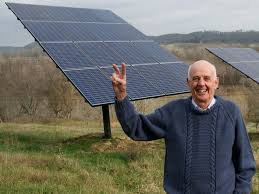
might label Berry eccentric. He is skeptical of technology, for example, and doesn’t own a TV or a computer. The most advanced technology that can be seen on his farm are four huge solar panels and (in his house) a CD player. According to Skinner, Berry remains “cheerful in his dissent.” At age 81, he is “not at odds with his conscience” even though at times “he’s at odds with his times.”
Berry said this about contemporary American society: “The most alarming sign of the state of our society now is that our leaders have the courage to sacrifice the lives of young people in war, but have not the courage to tells us that we must be less greedy and wasteful.” Wow, I say.
Let me conclude with a few lines from A Timbered Choir. The poems in this book grew out of Berry’s custom of walking his land every Sabbath. “I keep an inventory/ Of wonders and uncommercial goods,” he writes. We might ask ourselves, do we too keep “an inventory of wonders”? Of work, he writes, “Work done in gratitude,/ Kindly, and well, is prayer.” Do we ever consider our work prayer? And finally, he calls Nature “the best farmer, for she/ Preserves the land, conserves/ The rain; she deepens the soil,/ Wastes nothing; and she is/ Diverse and orderly.”
The song I chose today is “Love Will Hold Us Together” by Matt Maher. It speaks of being our brother’s (and sister’s) keeper, a theme found throughout Berry’s writings. Also the refrain “This is the first day of the rest if your life” reminds me of Berry’s great appreciation for the gift of life and for all of creation.
What are your thoughts about Berry and/or about the song? I’d love to hear from you!

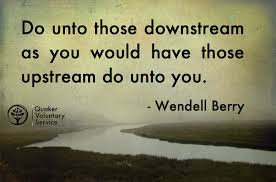


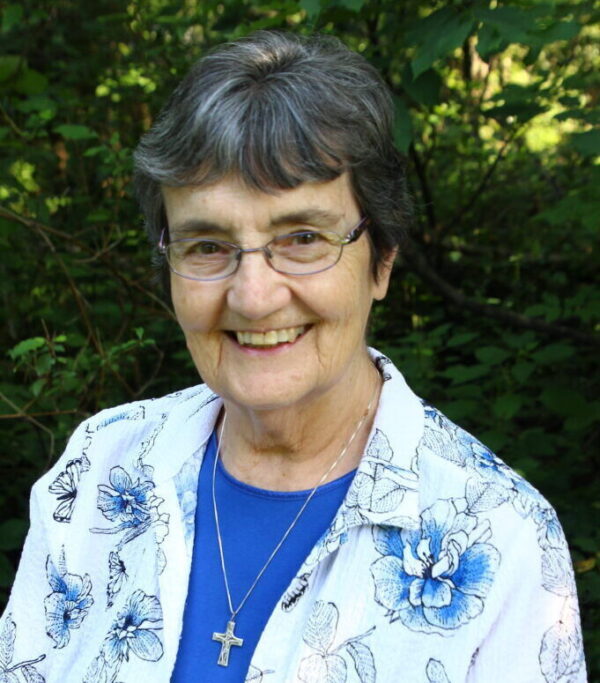

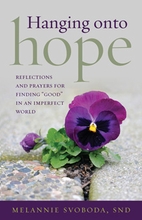

10 Responses
Good one Sr. Melanie!
I am feeling a little alone today in England but the song reminded me that I am not. For me, the song was a God sighting that I only need pause and Jesus is right there beside me.
Cheers!
Kathleen
I am reading a book that speaks very stongly of the Divine Presence.
We certainly see the Divine Presence in Wendell Berry. As our awareness heightens, we are able to see and feel that Divine Presence in everyone and everything. We do become seers…see-ers.
Thanks for the story of Wendell Berry.
Blessings……
This fits in so very well with your recent reflection on trees and yesterday’s Gospel reading on God’s work in nature where seeds produce fruit and grain according to his plan. Thank you for such inspiring thoughts.
“Wow, I say.”…..I say wow also!!
Thank you once again for opening me to new ideas.
He is quite a man!
Gratefully,
Maggie
Sr. Melannie,
I so appreciate your wonderful and timely reflection on Wendell Berry–what a gift he is to this whole environmental area plus–
Thanks for all your thought provoking and inspirational reflections.
Sr. marietta
Sr. Melanie,
It is so good to see someone who has lived according to his convictions for all of his life.
Thank you. I enjoy all of your song selections.
Odelia
Sister Melannie,
Yes, Love will keep us together–loving & caring for one another is in God’s plan for us. I played the song A Mighty Rushing Wind also.
God Bless You & Thanks…
Thank you for telling me about Wendell Berry. Reading about his love of the soil leads me ponder the Master Gardener in the Garden of Eden. So beautiful.
Sr. Melainnie:
Love this quote – “The most alarming sign of the state of our society now is that our leaders have the courage to sacrifice the lives of young people in war, but have not the courage to tells us that we must be less greedy and wasteful.” Thank you for introducing me to Wendell Berry – maybe he should through his hat in the ever-expanding ring of candidates! And love the song selection too – thank you for your weekly reflections – I always learn something new! Peace, L
Do we have the courage to be less greedy and wasteful? It is so counter-culture. Living the simple life…it brings peace when we let go of all society values.